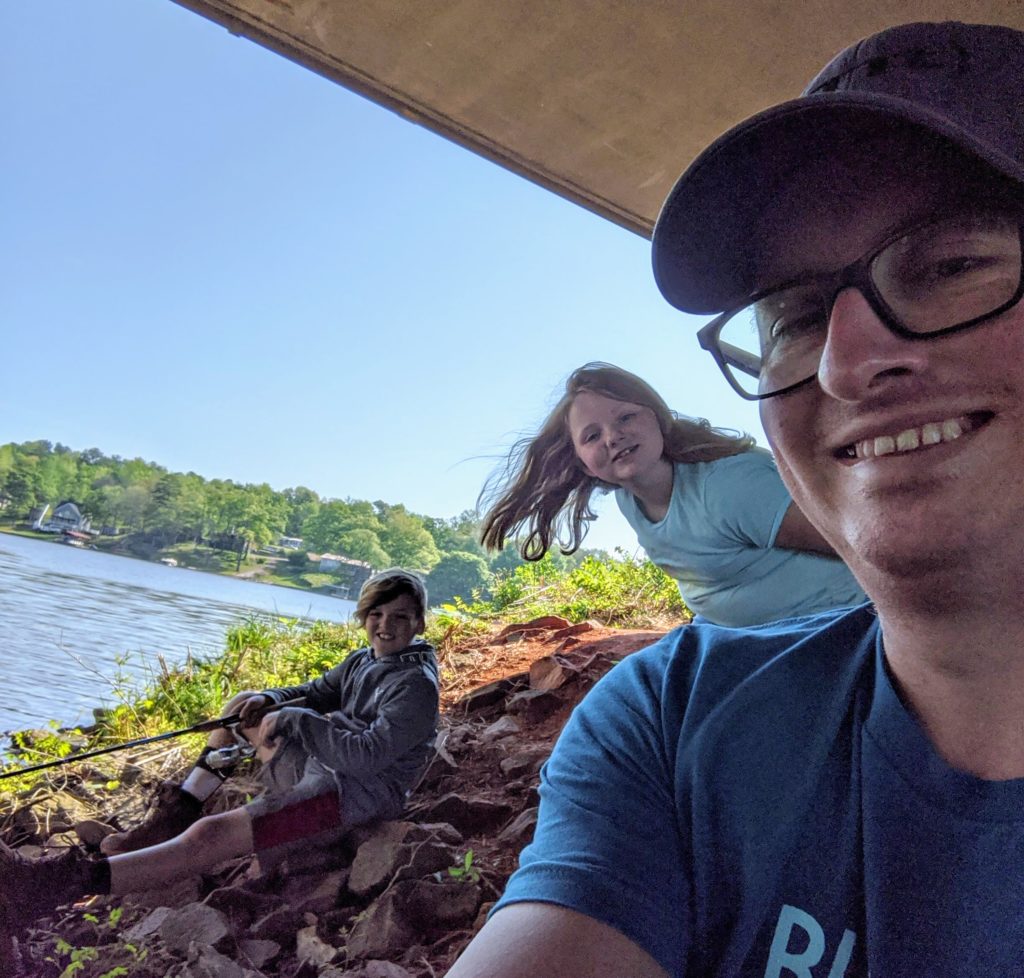Yesterday, for Father’s Day, my parents-in-law rented out a shelter at the local Lake’s park, and we all gathered for a great time of playing in the water, fishing, and eating.
In spite of the rain that seemed to come in waves, I had found a great little spot to catch a few fish.
No keepers, just a handful of little bait fish.
With a chunk of cut bait on the line out in the middle of the water waiting on a catfish, I contented myself to keep catching the little ones to pass the time, hoping for at least a large-enough crappie to take home and eat.
My 10-year-old and his 10-year-old cousin were in the water a few yards away when I noticed something creating weird curves on the water, headed past me in their direction. It took a few seconds to register, but it hit a spot in the water with no reflected sky, and I immediately recognized a Water Moccasin (one of the few poisonous snakes native to this area). It was a large one, around 3 feet long.
I suppressed my mild panic and told the kids to get out of the water and to come stand near me until I could scare the thing away.
They hurried out of the water, and stood at a fairly safe distance. Related: I have no idea how far a safe distance is from a snake that can travel by land or by lake.
Turns out, poisonous snakes (or at least this one) are not a bit scared of people, even people hitting them in the face with a fishing pole.
With the not-afraid poisonous danger noodle looming, I decided it would be best to pack it up for the day, and told the kids to reel in the catfish line.
That worked great until the chunk of cut bait passed too close to our new friend. He pounced on it, and swallowed the entire piece of bait—literally hook, line, and sinker.
To review: I now had a 3-foot poisonous snake hooked to the end of one pole, with the other two poles laying about 10 feet away, not to mention all of the other gear strewn about as only a flock of 10-year-olds can.
The decision to cut the line was a foregone conclusion. I briefly considered buying all-new fishing gear so that I didn’t have to walk back across the path of the snake who would be contemplating it’s life decisions by this point anyways.
If you happen to be down by Shelter 4 at Lake Greenwood State Park and notice a water moccasin with a lip ring and a 15-foot fishing-line leash, feel free to take him for a walk.

